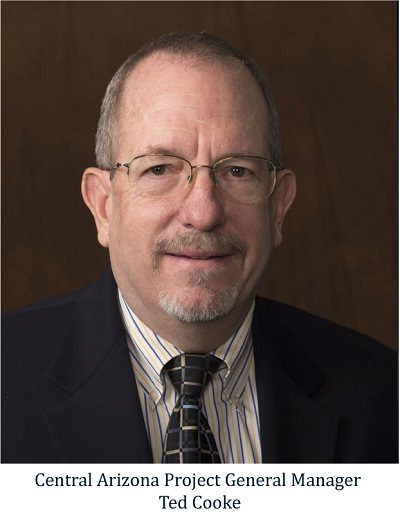- Nomination of Ted Cooke withdrawn by White House.
- Upper Basin opposition cited in the decision.
- Colorado River states face November deadline for new plan.
Tuesday, September 23, 2025 — The Bureau of Reclamation, the federal agency that manages dams, reservoirs, and water delivery across the West, has been left without a permanent leader following the withdrawal of Ted Cooke’s nomination on September 16, 2025. Cooke, the former general manager of the Central Arizona Project, was widely regarded as an experienced candidate well-suited to steer the Colorado River through a period of historic stress.
Cooke confirmed to reporters that he had been preparing for a Senate confirmation hearing when the White House abruptly asked him to withdraw. He said the explanation given—issues with vetting paperwork—was not convincing and that the real reason stemmed from political opposition by Upper Basin senators. The Upper Basin includes Utah, Colorado, Wyoming, and New Mexico.
that he had been preparing for a Senate confirmation hearing when the White House abruptly asked him to withdraw. He said the explanation given—issues with vetting paperwork—was not convincing and that the real reason stemmed from political opposition by Upper Basin senators. The Upper Basin includes Utah, Colorado, Wyoming, and New Mexico.
A River Under Strain.
The Colorado River supports 40 million people, 30 tribes, and vast areas of agriculture across seven U.S. states and Mexico. It also generates hydropower and sustains critical desert ecosystems. For three decades, the river has experienced dwindling supplies due to drought and climate pressures. Negotiations are underway to develop post-2026 management guidelines before the current shortage rules expire.
The withdrawal of Cooke’s nomination adds uncertainty as the November 11 deadline approaches. Interim leaders at the Interior Department are overseeing negotiations, but they do not carry the same authority to enforce directives or drive compromise among divided states.
as the November 11 deadline approaches. Interim leaders at the Interior Department are overseeing negotiations, but they do not carry the same authority to enforce directives or drive compromise among divided states.
Stanton’s Statement.
In response to the White House’s decision, Arizona Congressman Greg Stanton, a Democrat representing Arizona’s 4th District, issued a statement on September 18 . He described Cooke as “eminently qualified” and said the vacancy leaves the bureau without leadership “during the most perilous period in Colorado River history.” Stanton expressed concern that the process had been politicized at the worst possible time.
. He described Cooke as “eminently qualified” and said the vacancy leaves the bureau without leadership “during the most perilous period in Colorado River history.” Stanton expressed concern that the process had been politicized at the worst possible time.
Stanton, a former Phoenix mayor, serves on multiple congressional committees and has been active in water and infrastructure policy. He warned that without steady leadership, the basin states’ ability to reach consensus could be undermined, potentially leading to litigation.
Broader Concerns.
Water officials and observers across the West echoed concerns about the leadership gap. Some Upper Basin officials worried Cooke would show preference to Arizona , while others questioned whether political maneuvering
, while others questioned whether political maneuvering had overtaken the need for an experienced hand at the bureau. Former federal officials and water policy experts emphasized that the Colorado River’s challenges require apolitical leadership and long-term knowledge of basin management.
had overtaken the need for an experienced hand at the bureau. Former federal officials and water policy experts emphasized that the Colorado River’s challenges require apolitical leadership and long-term knowledge of basin management.
With only weeks left before a major deadline, the search for a new nominee is expected to take months, leaving the West to navigate its most critical water negotiations in decades without a permanent commissioner in place.
Image of Ted Cooke from the Arizona Department of Water Resources.
from the Arizona Department of Water Resources.
FAQ
Who is Ted Cooke?
Ted Cooke served as the general manager of the Central Arizona Project from 2015 to 2022. The CAP delivers water from the Colorado River to central and southern Arizona, including Phoenix and Tucson.
Why was his nomination withdrawn?
The White House told Cooke his withdrawal was tied to paperwork issues. However, Cooke and others have said the real reason was opposition from Upper Basin senators who feared he might favor Arizona during river negotiations.
Why does the Bureau of Reclamation matter?
The bureau manages more than 600 dams and reservoirs, including Hoover and Glen Canyon. It delivers irrigation water to one out of five farmers in the West and supplies drinking water and electricity to millions of people.
What is at stake with the Colorado River negotiations?
The current shortage rules expire in 2026. Basin states must agree on new management guidelines to share the river during worsening drought. Without consensus, the river may not be able to meet demand in the coming years.
What happens next?
The Interior Department has interim leaders guiding talks, but a permanent commissioner must eventually be nominated and confirmed. It is unclear whether the White House will put forward another candidate before the November deadline.


